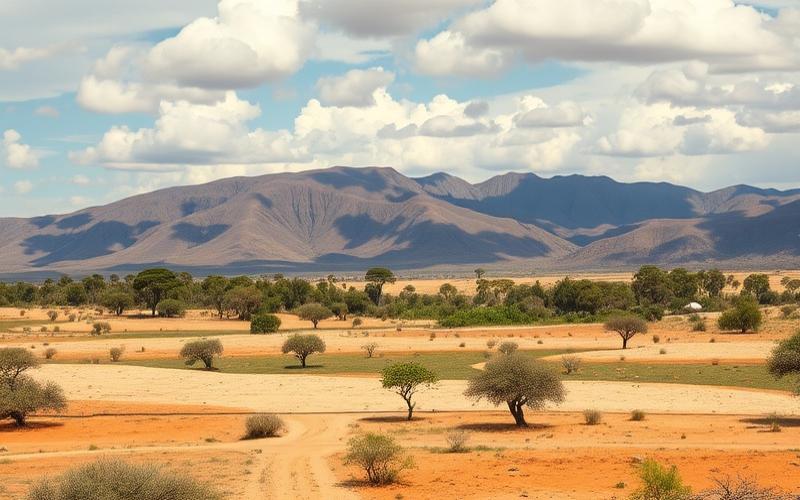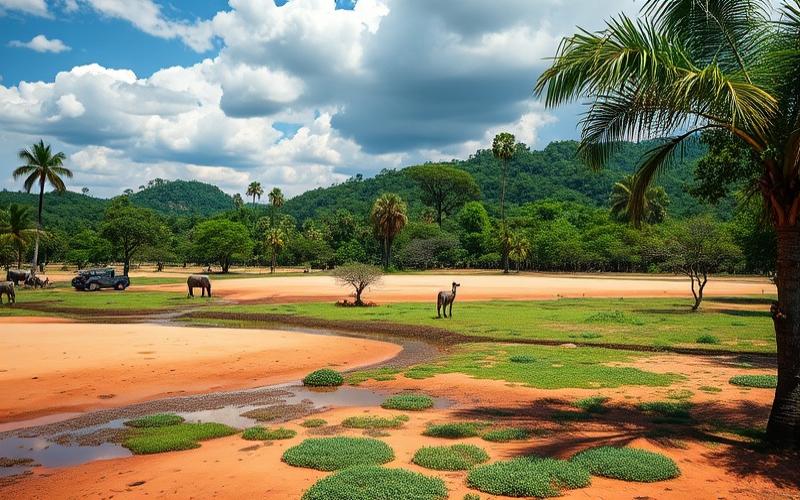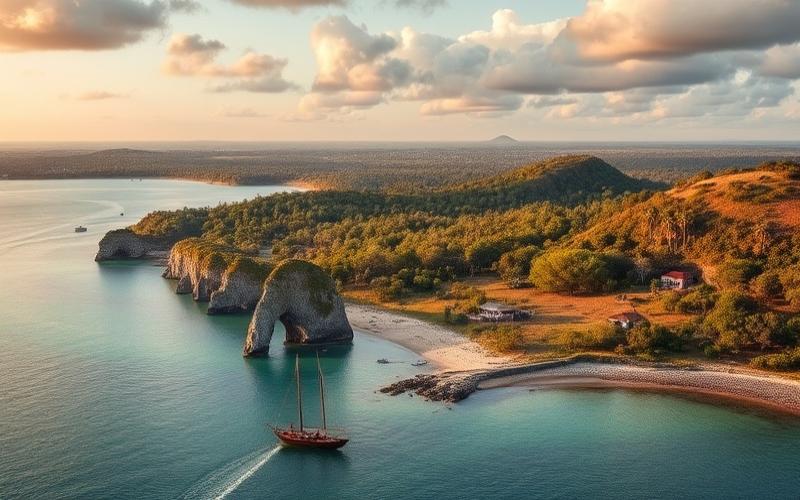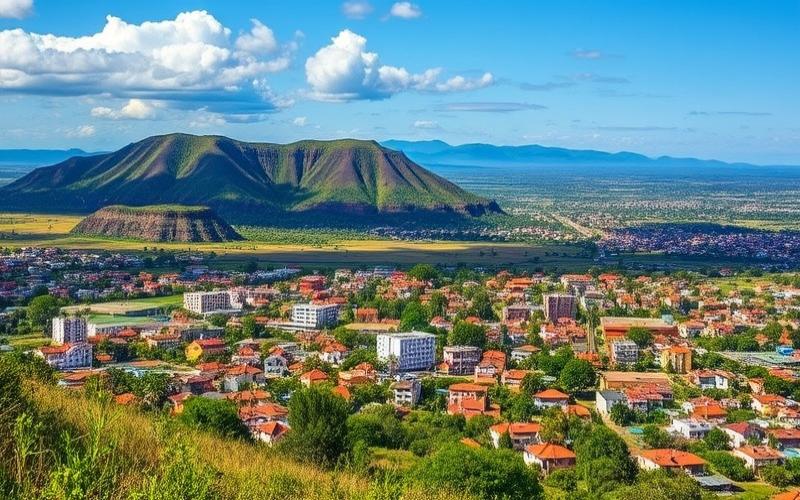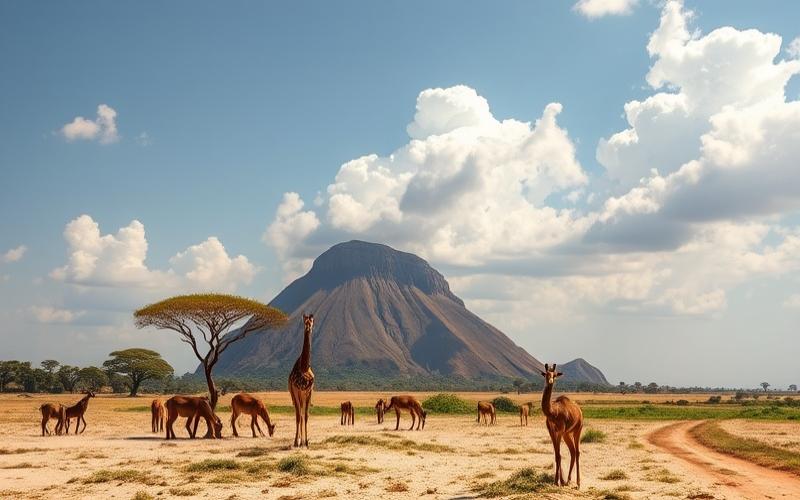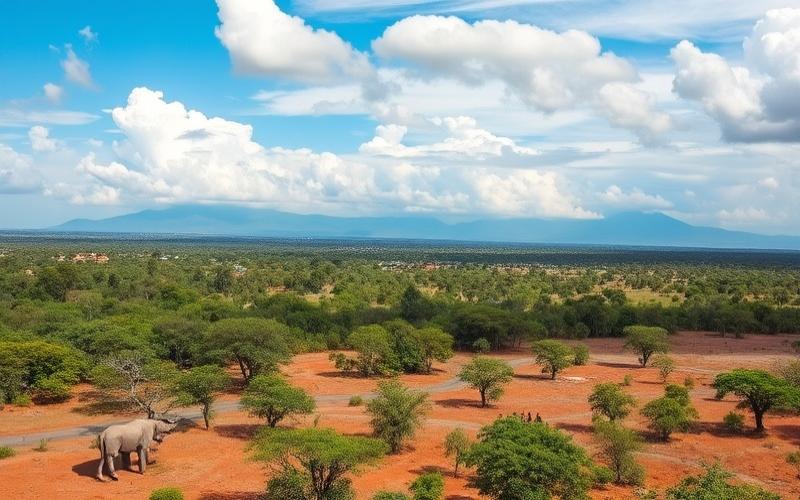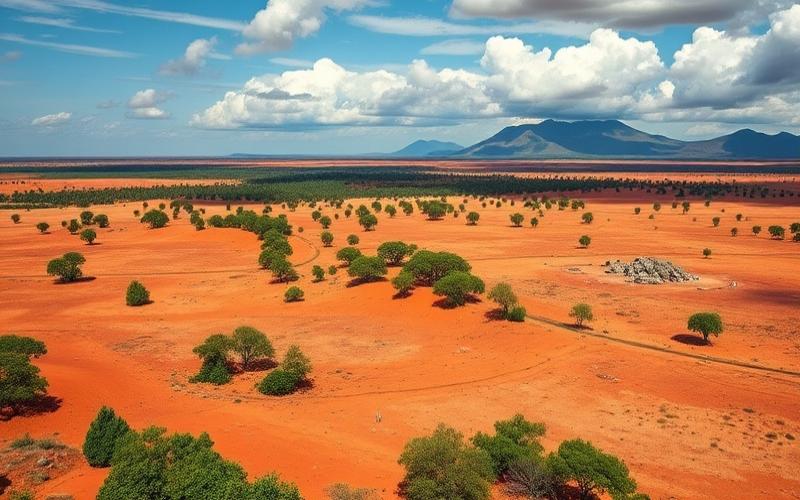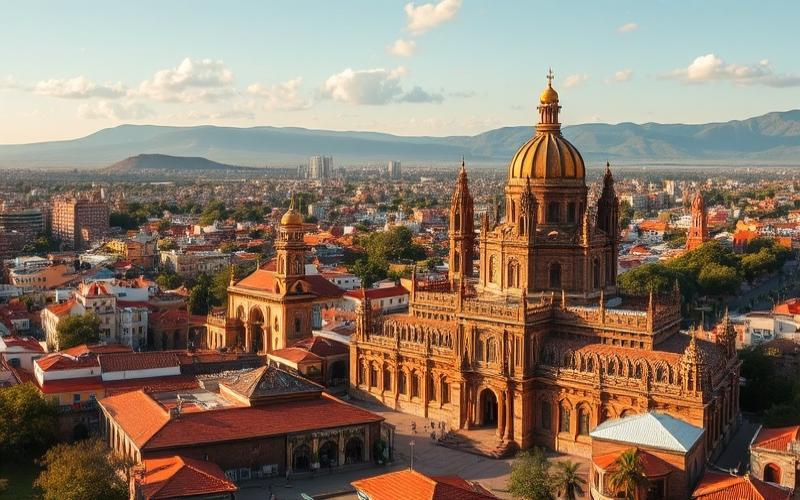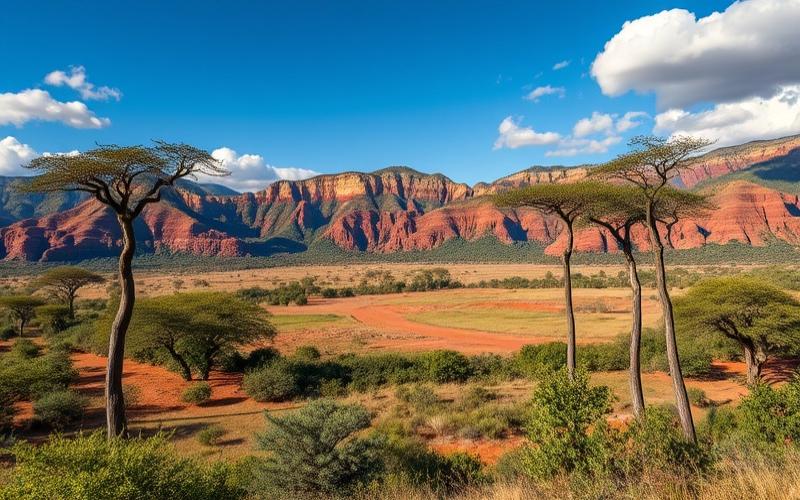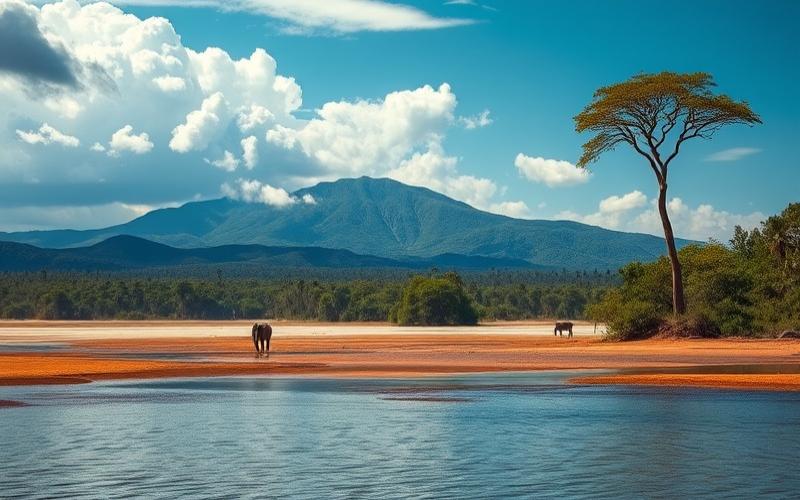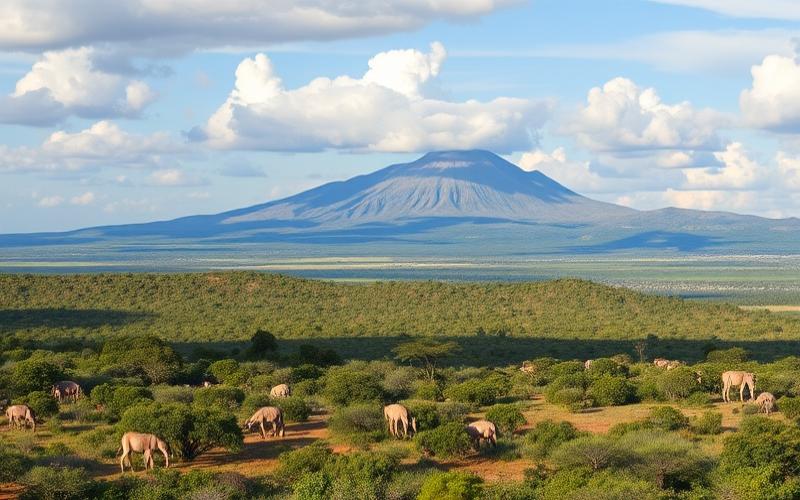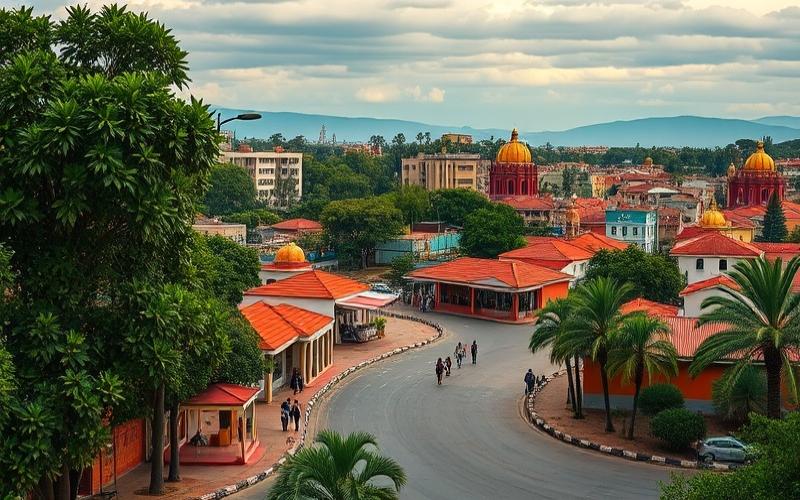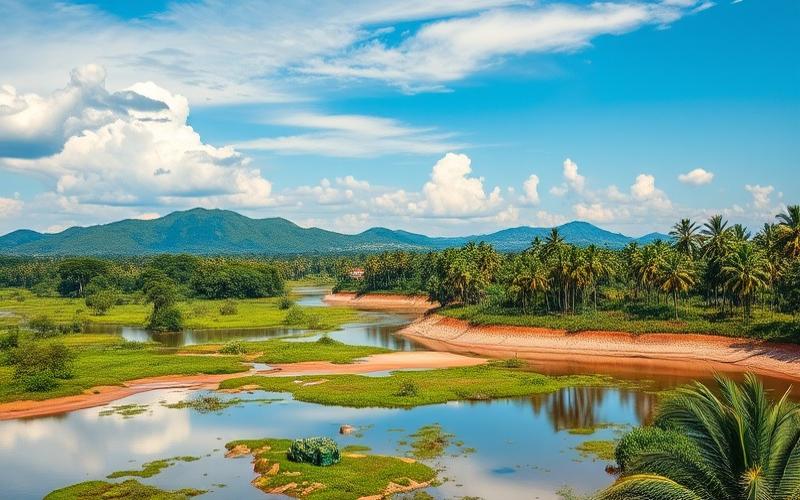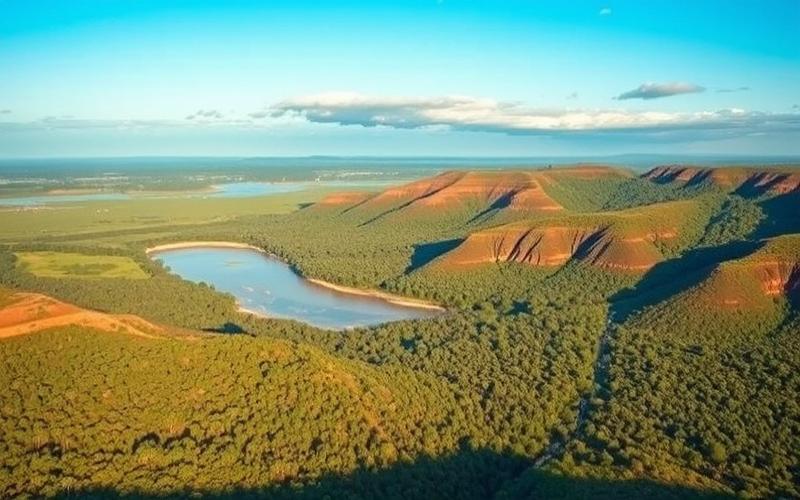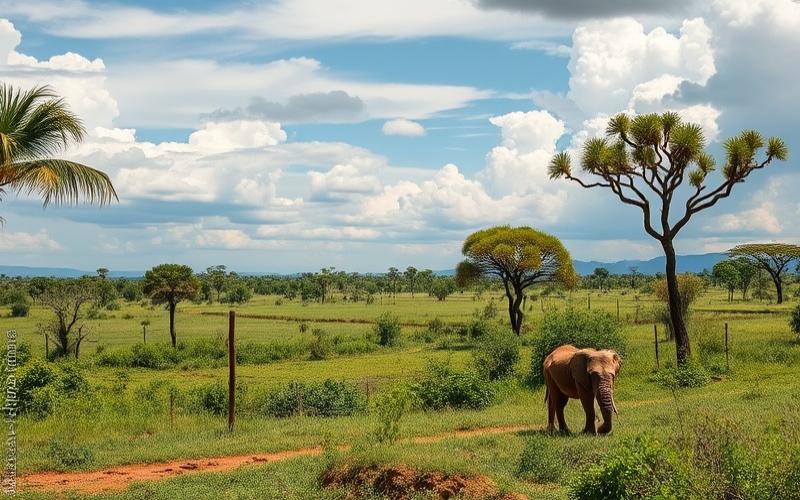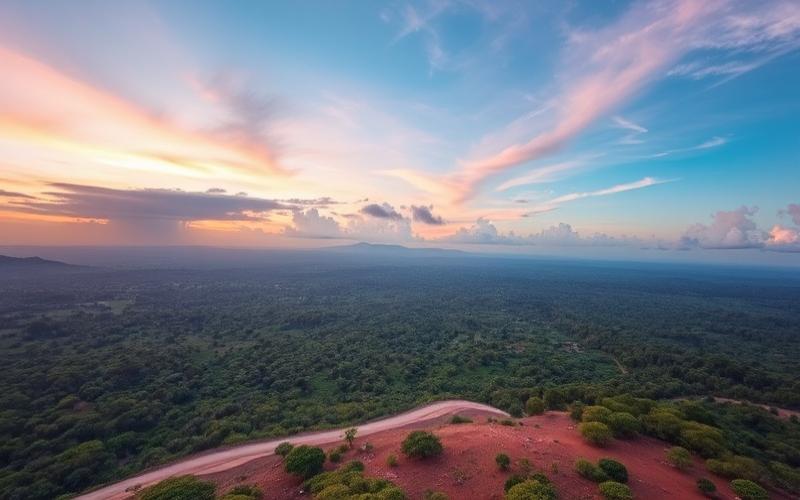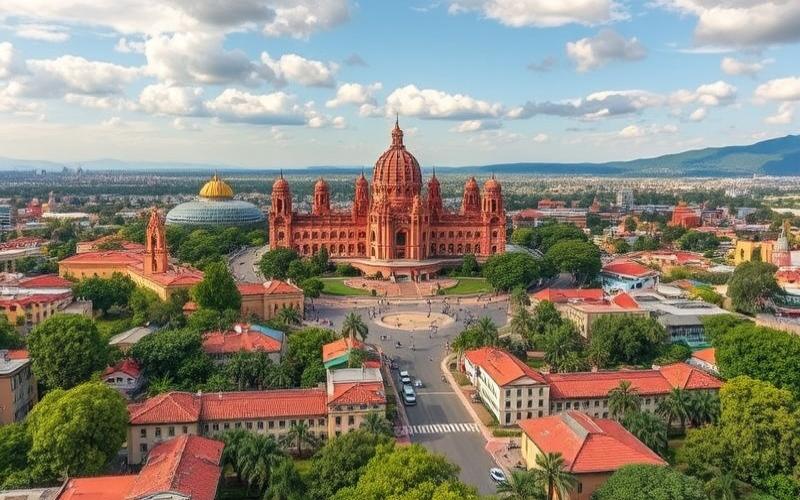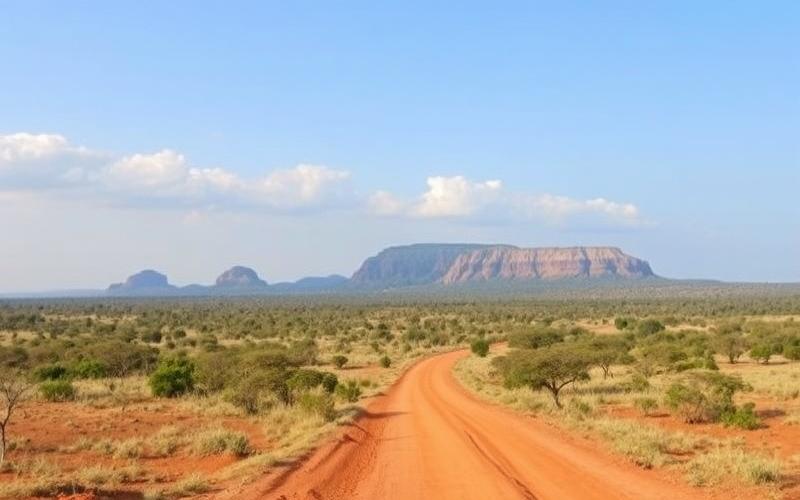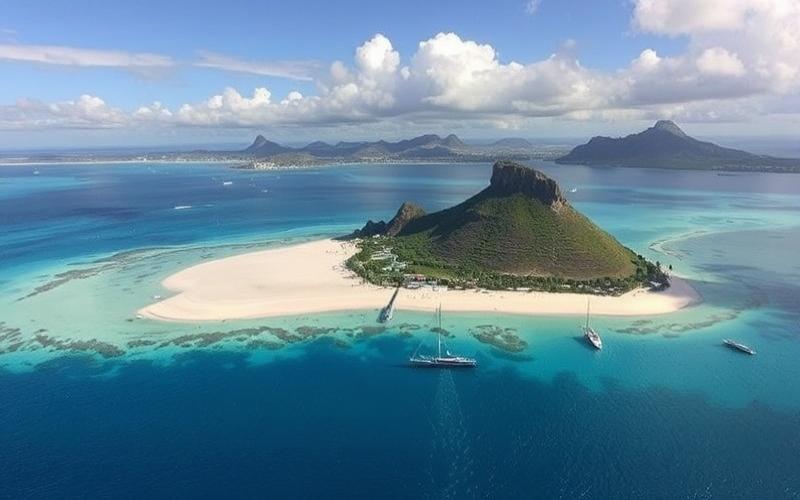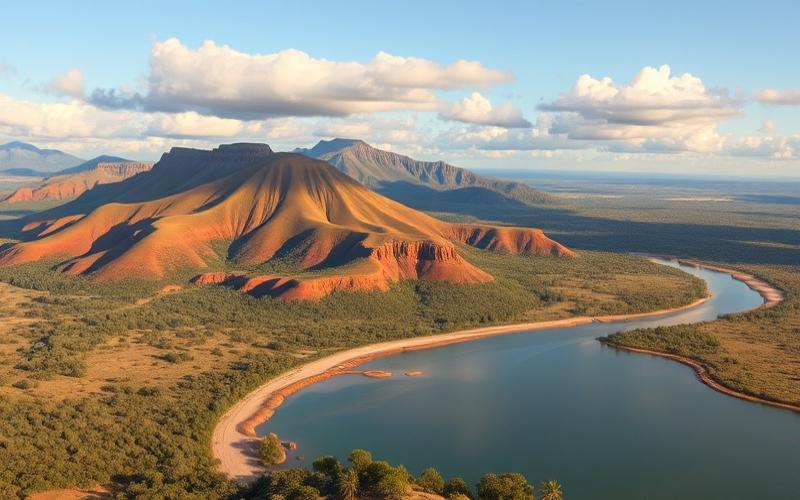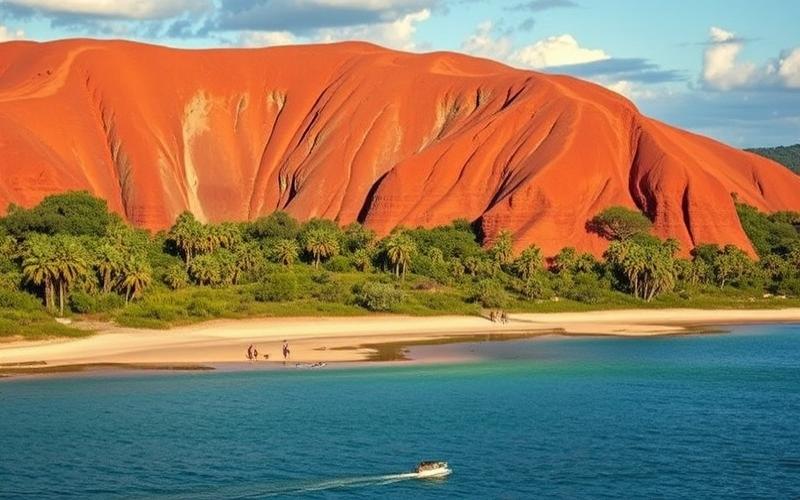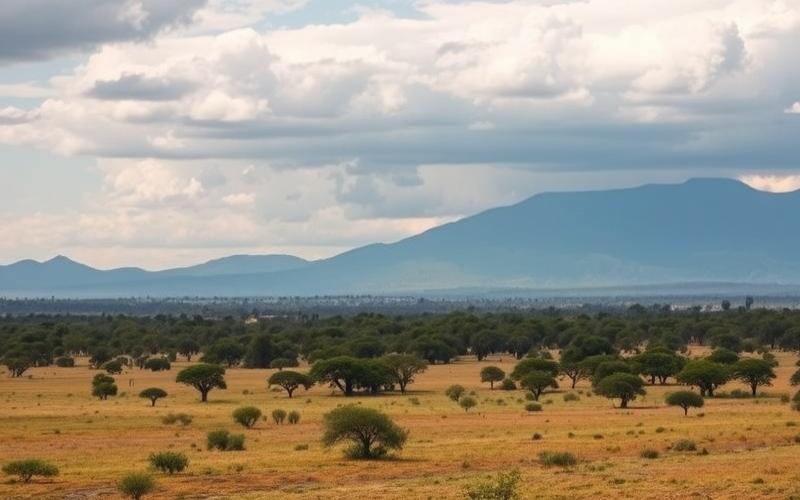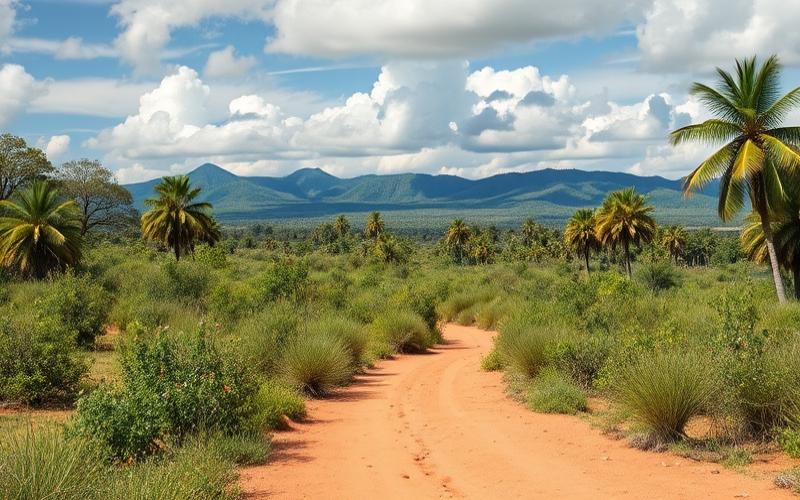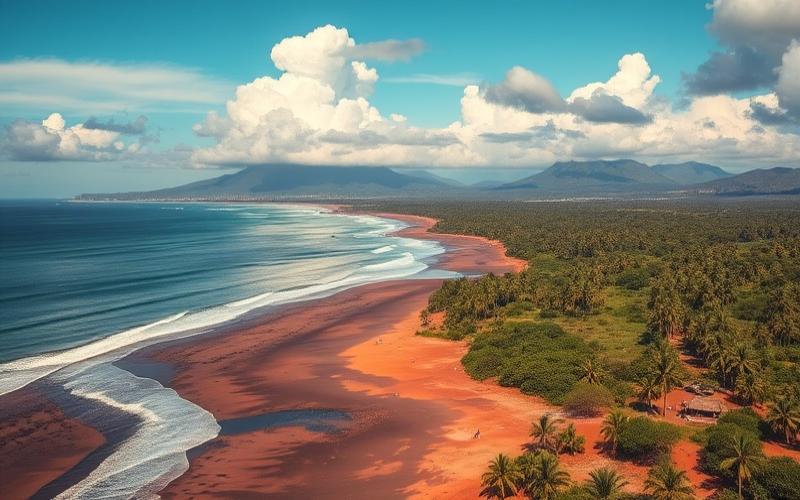
 Published on and written by Cyril Jarnias
Published on and written by Cyril Jarnias
Real Estate in Madagascar
Real estate in Madagascar is a rapidly expanding field, attracting an increasing number of local and foreign investors eager to capitalize on the unique opportunities offered by this Indian Ocean island.
Leverage: A Strategic Tool
At the heart of this dynamic, leverage emerges as a powerful strategic tool, enabling investors to significantly expand their investment reach while minimizing equity contributions.
Good to Know:
However, judicious use of this leverage requires a thorough understanding of the local market and its specific characteristics.
Key elements to master include:
- Current regulations
- Economic fluctuations
- Characteristics of different available property types
Optimizing Your Investment
This article explores various methods and tips for optimizing real estate investments in Madagascar through leverage, focusing on:
- Opportunities to seize
- Precautions to take
All with the goal of ensuring increased and secure profitability.
Understanding Leverage Credit in Madagascar
Leverage in real estate is a financial mechanism that involves using borrowed capital to increase investment capacity and potentially grow long-term capital. Instead of relying solely on personal savings, the investor obtains a real estate loan, allowing them to acquire properties of greater value than their initial capital.
The fundamental principle of leverage allows for amplifying the profitability of a real estate investment. For example, with €150,000 in personal savings, an investor can either purchase a €150,000 property without a loan, acquire a €300,000 property by borrowing an additional €150,000, or even invest in multiple properties by distributing their personal contribution.
To evaluate the effectiveness of this strategy, two concepts are essential:
- Economic return (Reco): operating result minus taxes, divided by invested capital
- Financial return (Rfi): net result divided by equity
Conditions for Successful Leverage
For leverage to be positive, the rental investment’s profitability must exceed the loan interest rate. The higher the debt ratio, the more powerful the leverage. It’s even possible to invest with a bank loan without any personal contribution, but this is generally reserved for strong financial profiles.
Malagasy Context
In Madagascar, real estate leverage is beginning to develop but remains limited compared to Western markets. The main financial institutions offering real estate credit are BNI Madagascar, BFV-SG, BOA, and BMOI. These banks provide real estate loans with interest rates typically ranging between 12% and 18% depending on the borrower’s profile and loan term.
Borrowing conditions in Madagascar are more restrictive than in Europe:
- Minimum personal contribution often 20-30% of purchase price
- Repayment period generally limited to 15-20 years
- Stable and formal income required (difficult for informal sector)
- Significant guarantees demanded (mortgage, guarantee, life insurance)
| Institution | Interest Rate | Max. Term | Min. Contribution | Specific Features |
|---|---|---|---|---|
| BNI Madagascar | 13-16% | 20 years | 25% | Options for diaspora |
| BFV-SG | 12-15% | 15 years | 30% | Faster process |
| BOA | 14-18% | 15 years | 25% | Flexible guarantees |
| BMOI | 13-17% | 20 years | 20% | Personalized support |
Regulations and Local Specificities
Malagasy regulations governing real estate credit are defined by banking law n°95-030 and directives from the Banking and Financial Supervision Commission (CSBF). Specific features include:
- Mandatory mortgage registration with land services
- Real estate transaction taxation (6% registration fees)
- Complex land issues sometimes limiting credit access
- Absence of developed mortgage refinancing mechanisms
Specific Risks in Madagascar
Using leverage in Madagascar involves particular risks:
- Political and economic instability potentially affecting property values
- Ariary volatility against foreign currencies (exchange rate risk)
- Low real estate market liquidity if quick resale is needed
- High interest rates reducing margin between profitability and credit cost
- Sometimes uncertain legal framework regarding property rights
Practical Tips for Malagasy Investors
- Prioritize high-potential areas like Antananarivo, Nosy Be, or Tamatave
- Diversify investments to spread risks
- Maintain cash reserves equivalent to 6 months of payments
- Choose properties that can attract international clientele (for foreign currency income)
- Work with specialized notaries and lawyers to secure transactions
- Consider partnerships with Malagasy diaspora investors
Real estate leverage in Madagascar, although less accessible than in Europe, offers interesting opportunities for investors with good knowledge of the local market and a strategy adapted to the country’s specificities.
Good to Know:
In Madagascar, real estate leverage allows investors to acquire properties using mainly borrowed funds, thus maximizing their potential return. Local banks like BNI Madagascar and BFV offer real estate loans with interest rates ranging between 8% and 12%, depending on economic conditions and borrower creditworthiness. However, banking regulations impose strict limits on debt ratios, often capped at 33%, to reduce over-indebtedness risks. A Malagasy investor seeking to maximize leverage must carefully assess repayment capacity in a real estate market marked by price fluctuations. Examples, such as successful investments in residential developments in Antananarivo, illustrate how well-used leverage can generate significant wealth growth. However, vigilance is required against risks, particularly avoiding overestimating rental or resale potential of properties.
Developing Smart Debt Strategies
Smart Debt Strategies in Malagasy Real Estate
Real estate leverage represents a powerful financial mechanism allowing borrowing to invest more and thus multiply financial capabilities. In Madagascar, this concept takes on a particular dimension given the island’s growing real estate development potential and gradual opening to foreign investors.
Fundamental Principle of Leverage
Leverage, originally a physical concept discovered by Archimedes, applies to real estate finance as a means to amplify investment strength. Specifically, it enables increasing capital and rental income long-term, much more effectively than with cash purchases. For this mechanism to be beneficial in Madagascar, rental investment profitability must absolutely exceed the loan interest rate obtained from local financial institutions.
Financing Options in Madagascar
Investors, including foreigners, have several options to finance their real estate projects on the island:
- Traditional real estate loans offered by major banks like BNI Madagascar, BOA (Bank of Africa) or BFV-SG (Société Générale)
- Financing with or without personal contribution (reserved for financially strong profiles)
- Possibility to invest in SCPI shares financed through credit
| Financing Type | Advantages | Constraints |
|---|---|---|
| Standard bank loan | Accessibility, regulated rates | Potentially shorter term for non-residents |
| Financing without contribution | Maximizes leverage | Reserved for very strong profiles, potentially higher rates |
| SCPI credit | Diversification, delegated management | Less direct control over assets |
Advantages and Risks Specific to Malagasy Context
Using leverage in Madagascar offers considerable advantages:
- Ability to build wealth with little personal savings
- Significant real estate development potential on the island
- Policies favorable to foreign investments in the sector
- Generation of important, constant and sustainable supplementary income
However, certain risks must be considered:
- Potentially higher interest rates for non-residents
- Sometimes shorter repayment periods than in Europe
- Necessity in some cases to open a local bank account with deposit of significant portion of amount as guarantee
Risk Minimization Strategies
To optimize leverage while limiting risks in Madagascar:
- Precisely evaluate optimal debt ratio – the higher it is, the more powerful the leverage, but the more risks increase
- Systematically verify that rental profitability exceeds credit cost
- Approach major banks present on the island accustomed to dealing with international clientele
- Carefully study Malagasy real estate taxation, which may offer advantages to foreign investors
- Consider country’s demographic and economic developments to anticipate high-potential areas
Real estate in Madagascar represents an interesting investment opportunity through leverage, enabling long-term capital growth while benefiting from the economic development of this island with paradisiacal landscapes.
Good to Know:
Leverage in Malagasy real estate allows investors to purchase properties with borrowed funds, thus maximizing their acquisition potential. Various debt types, such as mortgage loans, bridge loans and refinancing options, are available to finance these investments. These methods offer advantages like increased purchasing power and ability to diversify assets, but they also involve risks, particularly due to variable interest rates and economic instability. To minimize these risks, it’s crucial to manage finances well, diversify investments and carefully assess repayment capacity. The experience of investors who succeeded with smart debt in Madagascar shows that leverage can be applied effectively with strategic planning, as demonstrated by a local investor who successfully acquired multiple properties using these techniques while maintaining manageable debt ratio.
Optimizing Return on Investment in Malagasy Real Estate
To maximize your real estate investment return in Madagascar, meticulous location selection is paramount. Urban areas like Antananarivo, particularly the Ankorondrano and Andraharo neighborhoods, offer considerable potential due to growing business establishment and tertiary sector development. The upscale residential neighborhoods of Ivandry and Ankadimbahoaka also deserve your attention.
The tourism sector represents an exceptional opportunity, particularly in Nosy Be, nicknamed “the perfumed island,” which confirms its position as a privileged destination with a dynamic real estate market. Vacation villas, boutique hotels and ecotourism complexes in preserved regions constitute promising investments.
| Sector | Potential | Recommended Areas |
| Residential | High | Antananarivo (developing neighborhoods) |
| Tourism | Very High | Nosy Be, coasts, preserved regions |
| Commercial | Moderate to High | Antananarivo business districts, port areas |
To optimize financial leverage, consider strategic partnerships with local investors who master Malagasy market specificities. This approach not only shares risks but also benefits from valuable local expertise. Innovative financing like real estate crowdfunding is beginning to emerge and can constitute an interesting alternative to traditional bank loans.
Strategic Renovation
Strategic renovation represents a powerful lever to increase your investment value. Focus on:
- Modernizing sanitary and electrical installations
- Improving energy efficiency (particularly solar panels)
- Developing attractive outdoor spaces
- Adapting to international standards for expatriate or tourist clientele
Legal and Tax Aspects
On legal and tax fronts, Madagascar offers relatively advantageous taxation for real estate investors, with possible exemptions for certain project types. However, land security remains a major challenge. Ensure to:
- Meticulously verify property titles
- Use services of specialized notary and lawyer
- Scrupulously respect acquisition procedures for foreigners
- Stay informed of legislative developments concerning land ownership
Diversifying your real estate portfolio between residential, tourist and commercial properties will offer optimal balance between stable rental yield and long-term capital gain potential. This strategy allows risk distribution while benefiting from different market dynamics.
Essential Point: Investing in Malagasy real estate can prove very profitable provided your project is carefully planned and executed in compliance with local rules.
Good to Know:
To optimize return on investment in Malagasy real estate, it’s crucial to judiciously choose the geographical sector based on market trends like urban growth in Antananarivo or tourism development in Nosy Be. Investors can increase financial leverage by exploring innovative financing options, such as real estate crowdfunding or partnering with local investors to reduce risk exposure. Renovating or remodeling properties to adapt to local needs can also significantly increase their value, particularly by modernizing aging infrastructure. It’s essential to respect Malagasy rules and regulations to avoid legal sanctions that could affect profitability, ensuring for example that all renovations comply with local construction standards.
Tips for Successful Real Estate Investment in Madagascar
Successful real estate investment in Madagascar relies primarily on thorough research and solid understanding of the local market. It’s essential to analyze economic trends, price evolution per square meter in different regions (in 2025, average city price is around €605, with significant variations depending on location), as well as potential impact of local currency on your future profitability.
Key Points for Successful Investment:
- Carefully study developing neighborhoods benefiting from new infrastructure projects (transport, energy), as these areas present strong appreciation potential.
- Understand actual rental demand: rapid urbanization and emergence of middle class favor long-term rental in main cities.
- Learn about Malagasy legal specificities concerning land and real estate ownership.
Promising Property Types
| Property Type | Future Value Potential | Rental Income |
|---|---|---|
| Seaside second homes | High | Seasonal/tourism |
| Modern urban apartments | Medium to High | Stable/long term |
| Commercial buildings | Variable | Strong if well located |
| Ecological/sustainable projects | Growing | Attractive/niche |
Second homes on the coast, particularly in Nosy Be or certain popular seaside resorts, show a dynamic market driven by tourism. Modern apartments in city centers benefit from economic development and attract both expatriates and affluent locals.
Strategies for Using Leverage
- Compare interest rates offered by local banks; they may be higher than in Europe but remain accessible for certain investor profiles.
- Explore specific options for foreigners: some banking institutions now offer financing adapted to non-residents or expatriates with special status.
- Bet on substantial initial contribution to optimize financing plan while limiting risk related to currency fluctuations.
Essential Legal Considerations
- Secure your rights through rigorous verification of land title with competent authorities.
- Always verify seller’s legal history to avoid any subsequent dispute over property or origin of asset.
Practical tip: Imperatively surround yourself with specialized local professionals (lawyers specialized in Malagasy real estate law, experienced notaries and recognized real estate agents) facilitates each step – from negotiation to final deed drafting.
Long-Term Rental Management: Practical Tips
- Establish clear contract compliant with local law to frame each rental (duration, security deposit…).
- Plan regular technical and administrative follow-up through reliable local agency to ensure preventive maintenance and serene rent collection.
A solid professional network is indispensable: it significantly reduces risks related to geographical distance or Malagasy legal specificities while maximizing your future returns.
Good to Know:
To succeed in Malagasy real estate investment, it’s crucial to conduct thorough research on the local market, particularly identifying promising properties like those located in Antananarivo or Nosy Be which offer good prospects in terms of appreciation and rental profitability. Using leverage effectively involves taking advantage of attractive local interest rates and inquiring about financing options accessible to foreign investors. It’s essential to secure your property rights and proceed with rigorous verification of sellers’ backgrounds to avoid disputes. For long-term management, consider entrusting your properties to an experienced local property manager and assemble a team of professionals, including specialized lawyers and real estate agents, to navigate the often complex Malagasy legal framework. Adopting these strategies will allow you to maximize investments while minimizing associated risks.
Disclaimer: The information provided on this website is for informational purposes only and does not constitute financial, legal, or professional advice. We encourage you to consult qualified experts before making any investment, real estate, or expatriation decisions. Although we strive to maintain up-to-date and accurate information, we do not guarantee the completeness, accuracy, or timeliness of the proposed content. As investment and expatriation involve risks, we disclaim any liability for potential losses or damages arising from the use of this site. Your use of this site confirms your acceptance of these terms and your understanding of the associated risks.

